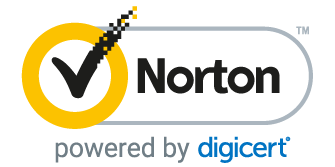Under certain conditions, the IRS considers interest paid on loans a tax-deductible business expense. Learn if you qualify and how your deduction is calculated to start saving money this tax season.
Qualifying for a small business interest tax deduction
While we all know that the IRS’s rules and processes can often be quite complicated, the business loan tax exemption is a lucky exception. There are only two criteria that need to be met for loans to be eligible for this deduction:
The lender and business must have a genuine lender-debtor relationship.
The IRS only allows interest to be written off if the loan is made by a genuine lending authority, such as a bank. Unfortunately, small businesses that use start-up funds from friends or family are ineligible for this deduction. This is because the IRS views informal lending agreements between people with personal relationships as quite different from other loans. Individuals cannot always enforce the terms of the loan, might not charge standard interest rates, and might not even require full repayment. As a result, the IRS views these arrangements to be more like gifts than loans, meaning that different tax rules apply.
In order to consider a loan valid for tax purposes, the IRS requires the debtor to be legally liable for the debt, show intention to repay the loan, and have a well-defined repayment schedule.
You might still be able to deduct interest from your tax liability if you borrowed from family and friends, but you must be able to provide adequate documentation. The IRS will probably require proof of an interest rate similar to that of a bank, records of all payments, and a promissory note signed by both parties. A licensed accountant will be able to discuss if the business loan interest tax deduction is an option for your small business.
You must have spent your business loan.
The only other criterion required for interest tax deduction eligibility is that you must have spent the money you received from your business loan. Even if you have been diligently paying back the interest and principal, if the money is still sitting in your bank account, your loan is not eligible for this deduction. The IRS deems unspent loan money an investment instead of an expense and thus treats it differently where taxes are concerned.
How Your Loan Type Affects Your Deduction
Below we’ll examine some common loan types and discuss how the interest tax deduction relates to each. This is not an exhaustive list, so you’ll want to discuss your specific situation with your accountant.
Personal Loans
While a personal loan is not strictly a business loan, you might still be eligible for the business loan tax exemption if you use the funds for your business. If the loan money is used for a mix of personal and business purposes – such as for a car used for both business and personal driving, or a home office in a mortgaged house – the proportion of interest that is tax-deductible is equal to the proportion of the loan used for business. For example, if you borrow money to buy a car used half for business and half for personal use, then half of the interest would be tax-deductible.
Term Loans
This same calculation applies to term SBA loans.
Business Lines of Credit
A line of credit is similar to a credit card in that it allows you to pull from a pre-set limit as needed. With this type of financing, you only pay interest on the amount of money you use. The amount of interest you pay (and can deduct) will depend on your usage, not your total limit. At tax time, you can consult your monthly statements or your lender to determine how much interest you paid that year.
Short-Term Loans
Short-term loans are comparable to term loans, except that their repayment period is much shorter: usually only one year. As a result, you’ll likely be eligible to deduct the entire interest on this loan over one or two tax filings. You can use a standard APR calculator to calculate the amount of interest paid in one year, but it is always best to get an exact accounting of paid interest from your lender.
Business Acquisition Loans
Whether or not a loan taken out for buying another business is eligible for this tax deduction depends on whether your business purchase is considered an expense or an investment by the IRS. What matters, in this case, is whether or not you plan to actively run the business. If you run this additional business yourself, it is likely that the interest paid for its acquisition is tax-exempt. However, if you purchase a business without the intention to actively participate in its management, for tax purposes that purchase is considered an investment. You might still be able to deduct some or all of the interest, but there are considerably more rules and limitations in this case. It is assumed that there will be a return on your investment, and as a result the interest paid for investments are not considered a business expense. Considering this, you cannot deduct more for interest than your new business makes per year, but you are allowed to carry interest over into further years. As this situation is much more complicated than that for other types of loans, be sure to discuss your business’s unique needs with a certified accountant.
Exceptions
Refinancing Your Loan
You might have the opportunity to refinance your business loan at a lower interest rate or better terms, which is almost sure to save you money. But keep in mind that if use a new form of financing to pay back your original lender, the interest paid on that original loan is no longer considered a business expense and is consequently no longer tax-deductible. Luckily, the interest on the new, refinanced loan is, so you become eligible for this deduction again as soon as you begin repayment.
Business Loan Interest Tax Deduction in a Nutshell
Although there are some conditions and limitations, your business loan interest is likely tax-deductible. As some situations can be more complicated than others, it always pays to consult a knowledgeable accountant about your specific circumstances.





